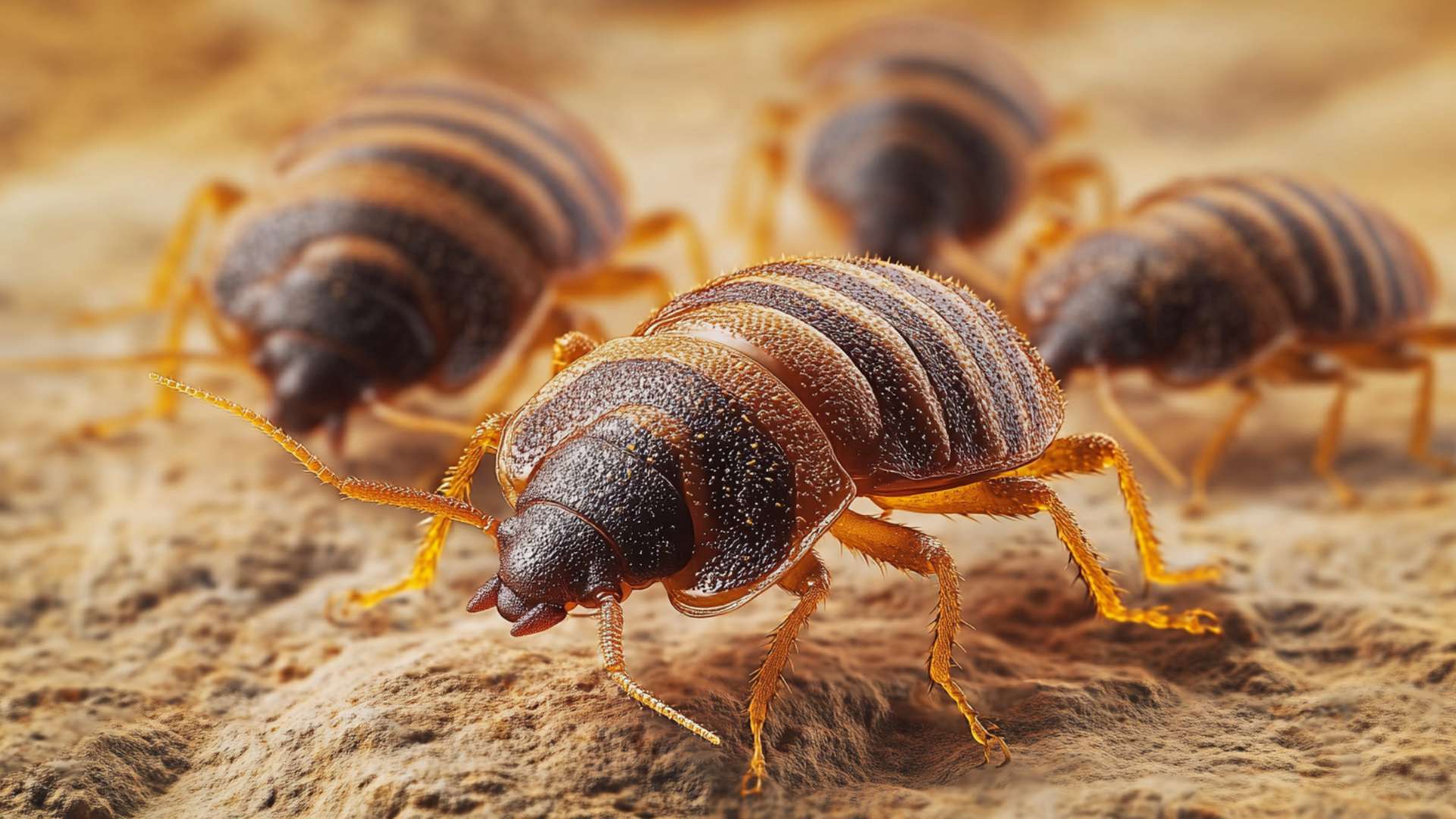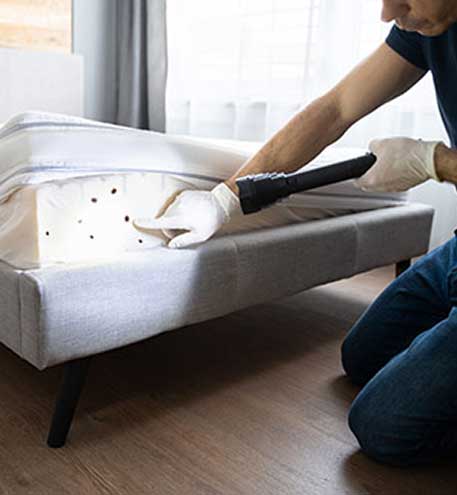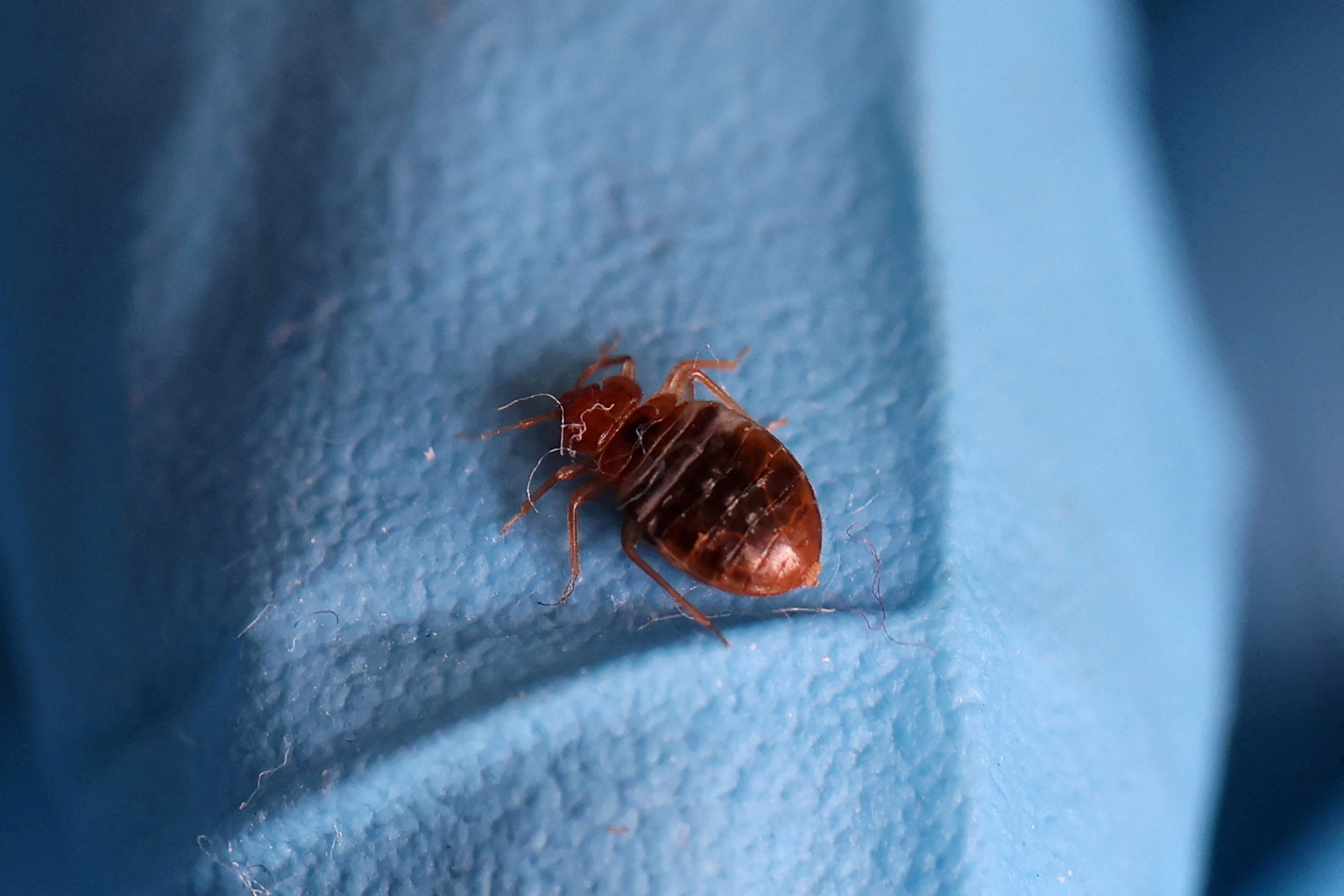King-size Bed Insect Pest Control Expert Cincinnati: Pro Pest Solutions
King-size Bed Insect Pest Control Expert Cincinnati: Pro Pest Solutions
Blog Article
A Failure of the Various Sorts Of Pest Control Solutions
In the realm of bug control, a multitude of techniques exist to deal with the visibility and address of unwanted creatures. From the traditional use chemical pesticides to more ingenious biological control options, each strategy offers distinct advantages and restrictions. As we browse via the varied landscape of pest control solutions, comprehending the ins and outs of each approach comes to be extremely important in determining the most effective strategy. Stay tuned as we check out the nuanced world of insect control methods and find exactly how each type plays a special function in securing our atmospheres.
Chemical Pesticides
Chemical chemicals are frequently utilized in insect control to effectively remove a large range of insects and various other bugs. These pesticides function by targeting the nerve system of the insects, interrupting their regular functions, and inevitably causing their demise. Making use of chemical pesticides has actually been a staple in the insect control sector for years due to their performance and quick outcomes.

Nevertheless, it is necessary to use chemical pesticides with caution due to their potential damaging impacts on the atmosphere and non-target types. Incorrect application or overuse of these chemicals can cause contamination, damage to helpful pests, and resistance growth in parasite populaces. It is important to comply with security guidelines and regulations when using chemical pesticides for parasite control.
Biological Control Approaches
Taking into consideration the prospective ecological effects and risks related to chemical pesticides, biological control approaches use a more lasting approach to taking care of insect populaces. Biological control entails making use of all-natural opponents, such as killers, parasites, and virus, to reduce parasite populations. This technique is often a lot more targeted, influencing only the certain pest types while decreasing harm to helpful insects, people, and the atmosphere.

One advantage of organic control is its lasting efficiency. When established, all-natural adversaries can help control pest populaces continually without the requirement for repeated applications of chemicals. In addition, biological control is frequently more cost-efficient and can help in reducing pesticide resistance in parasite populaces in time. Overall, organic control techniques offer a environmentally pleasant and sustainable solution to pest monitoring.

Mechanical Bug Control
Mechanical pest control includes the physical control or elimination of pests to manage their populations successfully. This approach is often employed along with other bug control approaches for comprehensive insect administration. One typical instance of mechanical bug control is making use of catches to record pests or rats. These catches can be established up in strategic locations where pests are known to dwell, helping to decrease their numbers.
Another mechanical approach is using obstacles such as internet, screens, or fences to obstruct bugs from going into particular areas. By literally preventing parasites from accessing an area, the probability of invasions or damage can be significantly lowered. Furthermore, manual approaches like handpicking bugs off plants or structures can be reliable for smaller-scale invasions.
While mechanical pest control approaches can be labor-intensive, they use a non-chemical alternative that can be lasting and environmentally pleasant. By targeting insects directly, mechanical control methods can help maintain insect populaces in check without depending on chemicals.
Natural Solutions
Using natural treatments for parasite control offers a environmentally friendly and sustainable strategy to managing pest populations without resorting to chemical interventions. Natural treatments entail making use of substances acquired from termite control professional plants, minerals, or various other naturally happening resources to prevent or eliminate pests.
Furthermore, important oils such as tea tree oil or neem oil have insecticidal residential properties that can successfully regulate bugs while being safe for the atmosphere. Another natural treatment is presenting valuable pests like ladybugs or praying mantises to your garden to take advantage of dangerous bugs. By integrating these natural solutions into parasite monitoring methods, people can minimize their reliance on synthetic chemicals and advertise a healthier, much more balanced ecological community.
Integrated Parasite Administration
Integrated Insect Management (IPM) is a thorough technique that integrates various approaches to properly manage pest populations while decreasing dangers to human health and the setting. IPM includes the integration of numerous insect control methods such as organic control, habitat adjustment, modification of social methods, and the use of immune crop ranges. By utilizing a mix of these techniques, IPM intends to decrease dependence on chemical pesticides, which can have negative effect on environments and human health.
One secret aspect of IPM is the emphasis on avoidance. By executing actions to stop parasite invasions prior to they find this occur, such as preserving correct cleanliness and securing entry points, the demand for reactive insect control actions is reduced. Surveillance and regular evaluations play a crucial function in IPM, permitting for early detection of bug concerns and site here prompt intervention.
Verdict
To conclude, the various kinds of parasite control solutions provide a series of alternatives for effectively handling bug problems. Chemical chemicals provide quick removal however might have ecological threats. Biological control methods utilize natural predators to manage bugs. Mechanical parasite control entails physical obstacles or catches. Natural remedies offer non-toxic alternatives. Integrated Insect Administration integrates several methods for an all natural strategy to pest control. Each approach has its very own advantages and downsides, and picking one of the most proper option depends upon the certain bug issue available.
Chemical pesticides are generally utilized in insect control to efficiently eliminate a large variety of insects and various other bugs.Mechanical insect control entails the physical control or removal of parasites to handle their populations properly (Kings pest control services Cincinnati oh).Utilizing all-natural remedies for parasite control provides a eco-friendly and lasting method to taking care of insect populaces without resorting to chemical interventions.Integrated Bug Management (IPM) is a thorough method that incorporates different approaches to properly manage pest populaces while reducing risks to human wellness and the environment.In final thought, the various kinds of parasite control services supply a range of choices for properly managing insect invasions
Report this page